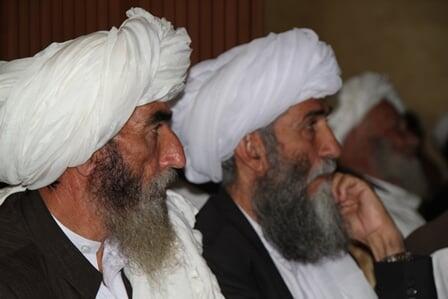Religious scholars from ten provinces- Kandahar, Helmand, Urozgan, Zabul, Paktia, Paktika, Khost, Logar, Ghazni and Midanwardak- are attending the meeting to discuss the common misconception that family planning is against Islamic principles
On the 13th of October 2014 representatives of the Ministry of Public Health, Parliament, the Ministry of Hajj and Religious Affairs, the United Nations Population Fund (UNFPA), the Ulama High Council and the Afghanistan Academy of Sciences inaugurated the second conference on Islam and Family Planning.
In 2003, only a tenth of Afghan women of childbearing age used modern methods of family planning. Today usage has doubled and contributed to fewer deaths in childbirth. Even so, only about 22 percent of couples are presently using contraceptives. This is attributable to a lack of comprehensive information, inadequate counseling skills among health service providers, limited access to contraception, and cultural and religious factors.
"It is scientifically proven that family planning and birth spacing can save lives. They can also prevent several health problems associated with pregnancy, such as obstetric fistula, and reduce the need to address complications resulting from unsafe abortions," said Mohammad Younus Payab, Assistant Representative of the United Nations Population Fund in Afghanistan.
Religious leaders are key to spreading awareness and acceptance of family planning in Afghanistan, where there is a common misconception that contraception is against Islamic principles. Through religious conferences UNFPA, together with the Ministry of Public Health and the Ministry of Hajj and Religious Affairs, works with key religious leaders to promote family planning so every pregnancy is wanted and every birth is safe.
More information:
Ministry of Public Health, Mr. Kaneshka Turkestani, Spokesman. Email: kaneshkaarab034@gmail.com




